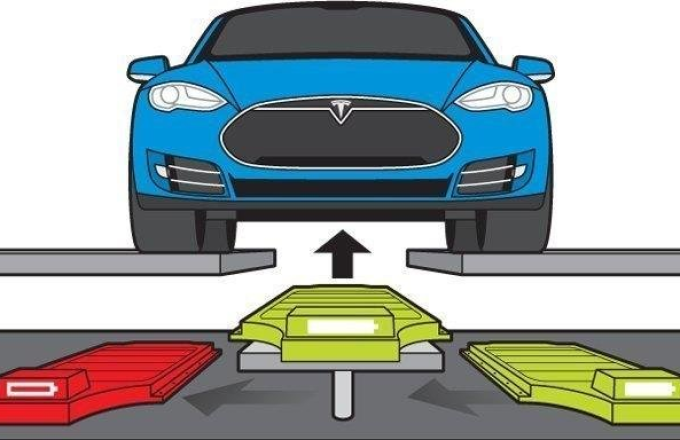
The One Big Beautiful Bill Act: Yet Another Policy Blunder
Dr Yim-fai Luk
9 July 2025
After several rounds of back-and-forth and maximum pressure, Donald Trump’s One Big Beautiful Bill Act (OBBBA) was narrowly passed by both US Houses of Congress last week, making it possible for him to sign the Act into law on Independence Day as he intended. Containing numerous items and spanning 870 pages, the Act is “big” given its far-reaching impact concerning livelihoods nationwide, in contrast to the often hyperbolic language typical of Trump. Whether it is “beautiful”, however, is a matter of opinion. In general, most of the Americans directly affected by the bill do not find it acceptable. According to a survey by the Pew Research Centre, 29% of respondents support the Act, 49% oppose it, and 21% are uncertain. Even a survey by Fox News, the Republican Party’s long-standing supporter, shows 38% in favour and 59% are against the bill.
The OBBBA primarily seeks to extend the Tax Cuts and Jobs Act enacted during Trump’s first presidency. Temporary in nature, the previous tax cuts were set to expire by December 2025 after eight years. However, the newly-passed Act has amended the policy to make tax cuts permanent. Tax reduction, especially for corporations, has long been the Republican Party’s policy direction, with the aim of increasing incentives for market activities, thus stimulating economic growth. To address the fiscal shortfall resulting from reduced tax revenue, Trump has raised the eligibility threshold for Medicaid coverage among American citizens. For example, individuals under the age of 64 are now required to work at least 80 hours per month to be eligible, and income and residence reviews will occur more frequently. Since Medicaid is the primary programme providing healthcare coverage for low-income and disabled groups, these more restrictive provisions will inevitably compromise benefits for the lower classes. While such policy changes are estimated to save the federal government approximately US$1 trillion over the next decade, they would cause about 7.8 million Americans to lose health insurance.
Direct impacts on the low-income groups also result from cuts to the Supplemental Nutrition Assistance Programme by around 30%, amounting to nearly US$300 billion over the next 10 years. As the name suggests, the programme provides food-purchasing assistance to families with limited financial resources. With both health and food benefits reduced, one clear consequence of the OBBBA is a widening post-tax, post-transfer income gap in the American society. Since the 1980s, income inequality in the US has worsened. The income share of the top 1% of earners soared from 10.4% in 1980 to 20.7% in 2023. In contrast, the income share of the bottom 50% fell from 20.1% to 13.4% during the same period. In other words, the total income of the top 1% is now one and a half times that of 50% of Americans. Trump’s reciprocal tariffs are rather regressive, i.e. while both the poor and the rich pay equal tax on the same imported product, the poor pay a higher price relative to their income. In addition, the OBBBA will make America’s economic disparity even harder to address.
Other major items in the OBBBA include terminating the tax incentives and subsidies for clean energy introduced during Joe Biden’s presidency. Trump has repeatedly turned a blind eye to climate change, treating new energy sources such as solar and wind with contempt while embracing traditional fossil fuels. This approach is consistent with his withdrawal of the US from the Paris Agreement on climate change soon after the start of each of his two terms in the White House. These fiscal changes will save the federal government around US$500 billion over the next decade. Nonetheless, the new Act will also expand the defence budget as well as spending on strengthening border security and immigration control―measures that Trump advocates. Based on rough estimates, cuts to Medicaid, food subsidies, clean energy, etc. will save US$1.7 trillion over the next decade, while tax cuts, higher defence budget, and augmented border control expenditures will create a fiscal burden of US$4.8 trillion. The net deficit of US$3.1 trillion will need to be financed through bond issuances. According to estimates by the Congressional Budget Office, all initiatives under the OBBBA will add US$3.4 trillion to the American national debt over the same period.
It is widely-known that, given its massive bond market and high liquidity, the US has been the world’s primary financial market and a safe haven for capital, signifying its status as the global financial hegemon. Nevertheless, the rapidly mounting national debt has raised market concerns about its sustainability. In the 2014 fiscal year, the US national debt stood at US$24 trillion or 102% as a ratio to GDP but, just 10 years later, it almost skyrocketed to US$36 trillion or 123% equivalent to GDP. Strictly speaking, 20% of this total debt is held by other federal government departments, such as the Social Security Administration. The remaining 80% is debt owed by the federal government to the public, with approximately 70% held by American investors and 30% by foreign investors. The changing US national debt market certainly warrants close attention. The reason is not that America may default, since both loans and repayments are denominated in US dollars. The Department of the Treasury can meet its obligations in full and on time by issuing additional dollars through the Federal Reserve. Despite the indirect process, in the final analysis, default is not necessary. That being said, since Trump was re-elected as president, a series of policies have eroded the international community’s trust in the US. Investors in US national debt now also have to take into account geopolitical factors. A notable example is that immediately after substantial reciprocal tariffs on various trading partners were announced on 2 April this year, both the dollar’s exchange rate and US bond prices fell simultaneously, forcing Trump to pause the implementation of these tariffs for 90 days. As the issuance of US treasury bonds continues to soar and buyers face additional factors to consider, both the role of the US bond market as a safe haven for global capital and the status of the US dollar have inevitably been compromised.
No doubt Trump and his governing team are aware of the importance of the US bond market and the dollar to the “Make America Great Again” goal. Hence, they have formally and informally put forward proposals to stabilize the US bond market. For instance, the Mar-a-Lago Accord was announced during Trump’s presidential campaign last year, which planned to use national defence and security protection as incentives to pressure foreign nations into converting their US treasury holdings into 100-year zero-coupon bonds, thereby deferring America’s debt burden. This proposal has not been officially raised in the past six months, likely indicating that the Trump administration is no longer in pursuit of the idea. Judging by other countries’ attitudes towards America during negotiations over reciprocal tariffs, the US is not as dominant as Trump may have imagined.
Perhaps self-reliance is a more preferable option. Turning his attention back home, Trump has proposed two policies to strengthen the US bond market. The first policy is to relax the supplementary leverage ratio requirements for large banks, allowing them to exclude national debt assets when calculating the ratio. As this would lower the capital requirements for their holdings of US treasuries, large banks may expand their holdings of national debt, with estimates ranging widely from hundreds of billions to trillions of US dollars. As a reference, US treasuries held by depository institutions in America, including all large, medium-sized, and small banks, totalled US$1.85 trillion at the end of 2024. The second policy is the so-called GENIUS Act, which requires Stablecoin issuers to maintain reserve assets in US dollars or short-term US treasuries on a 1:1 basis. In view of the growth potential of Stablecoins, there will likely be a corresponding surge in demand for US treasuries. The amount of US treasuries forecast by the Secretary of the Treasury Scott Bessent is expected to reach US$2 trillion, prompting rising demand for the continued issuance of US government bonds.
Having said that, the larger the size of bond issuance, the higher the annual interest burden. The government’s interest expenses are payments for the past, rather than benefits for people’s livelihoods at present. Debt payments are mandatory to avert default. The heavier the interest burden, the more likely it is to squeeze other spending and compromise the government’s ability to handle economic recessions and other crises. Last year, the US government’s interest costs surpassed its spending on national defence, and the growth rate of interest payments outpaced that of other expenditures. As a result, Trump rebuked Federal Reserve Chair Jerome Powell for adopting a wait-and-see approach to cutting interest rates. In response, Powell simply remarked that persistent inflationary pressures stemming from the uncertain reciprocal tariffs made it necessary to continue monitoring interest rate cuts. So Trump indicated he might advance the nomination of the next Fed Chair, effectively reducing Powell, who still has 10 months remaining in his term, to a lame duck. Trump’s fiscal dominance will subject US monetary policy to the White House’s fiscal agenda, which can be detrimental to US inflation control and the dollar’s long-term status.
The OBBBA and reciprocal tariffs are the cornerstones of Trump’s current economic policy, aimed at maintaining America’s financial hegemony while reindustrializing the nation. This approach is designed to ensure national security and preserve international dominance, yet avoids the efforts and commitments undertaken in the past. However, both policies have already begun to weaken America’s foundations even before being fully implemented. The economic disparity and debt accumulation resulting from the OBBBA may be sowing the seeds of a future economic crisis.







